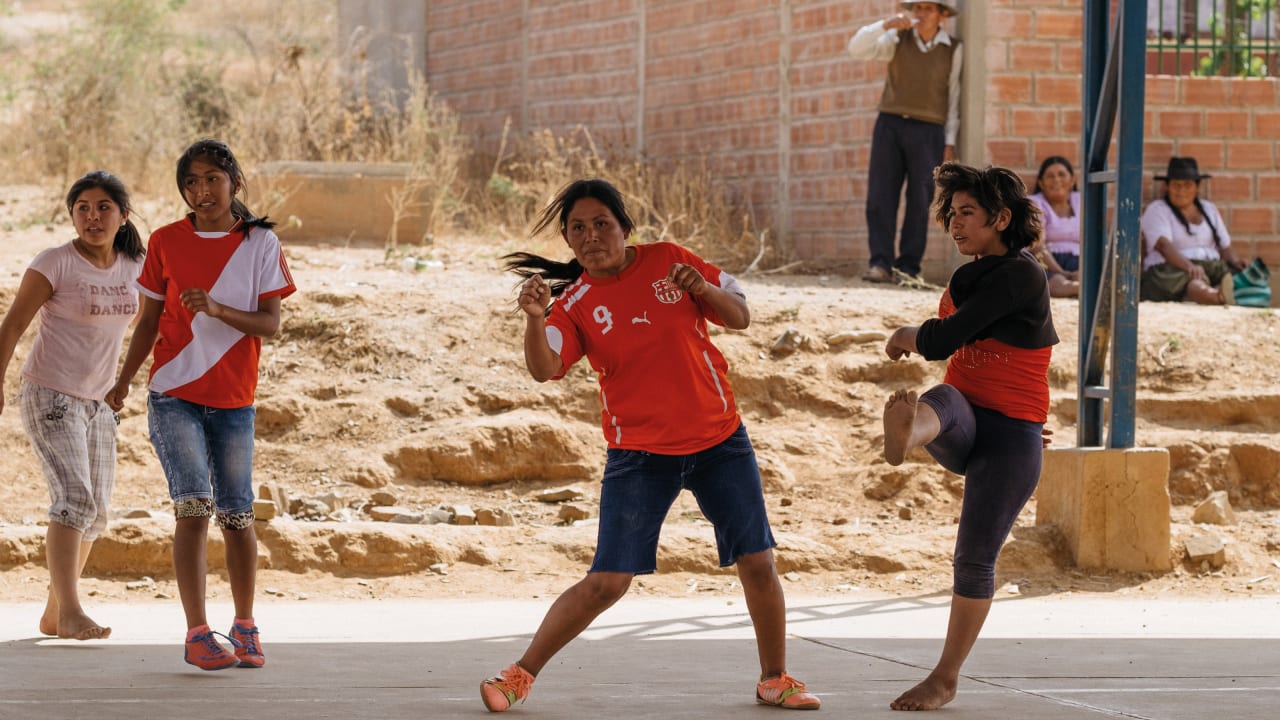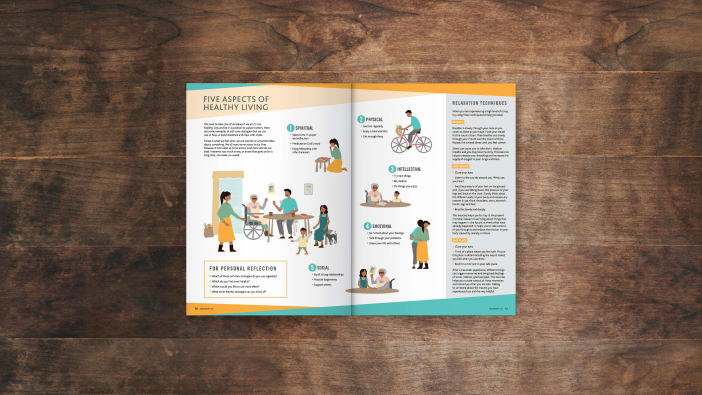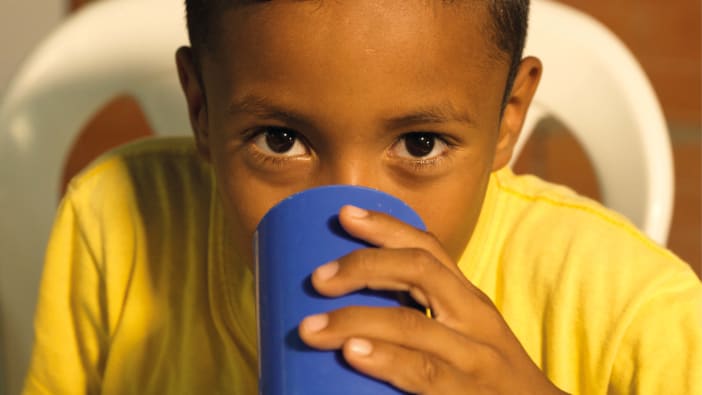What is resilience?
Resilience is the ability of an individual or community to cope with stress and function well, even in challenging circumstances such as war, disaster or illness.
Resilient people tend not to allow the difficulties they are experiencing to define who they are. Instead, they are able to see beyond the situation and view bad times as temporary, not permanent. They can adapt and adjust to their changed circumstances and still thrive.
In resilient communities, people draw closer and support one other during difficult times. Their desire to share resources and offer help to the most vulnerable helps them to recover. Good communication and agreement on what should be done in the event of an emergency often enhance resilience.
Can resilience be learnt?
Yes! The good news is that we can all become more resilient, and we can help others to grow in resilience too. Here are a few ideas for how to do this by living healthily in five interlinked areas of life: spiritual, physical, emotional, intellectual/creative and social.
Spiritual
Faith helps us to maintain perspective and acts as an anchor when we are feeling overwhelmed (eg Hebrews 6:19).
Being part of a faith community provides identity, hope for the future, reassurance, practical assistance and mutual support.
Physical
Exercise relieves tension and stress and boosts physical and mental energy. It can reduce the risk of depression, improve sleep and provide an opportunity to meet new people. Spending time enjoying and engaging with God’s creation can also enhance well-being, eg admiring the beauty of a sunset or sowing seeds and watching them grow.
A healthy diet, including a variety of fruit and vegetables, provides the energy we need to cope with the stresses we face each day. It also means our bodies are more likely to be able to fight off illnesses.
Most adults need between seven and nine hours of sleep a night to function at their best. Sleep refreshes our bodies and minds and helps us to stay healthy. Not enough sleep can negatively affect mood, energy, relationships and concentration levels.
Emotional
Emotions such as sadness, joy, anger and fear are an important part of being human. Not expressing our emotions, or expressing them in an unhelpful way, can be unhealthy and destructive to ourselves and others around us.
Being honest with ourselves about how we are feeling, and talking things through with a good listener, can be very helpful.
Intellectual/creative
Creative and intellectually stimulating activities help to keep our minds alert and healthy. These may include studies, games, dance, drama, singing, painting, reading and writing.
Social
We are stronger together than on our own. Healthy relationships give us the energy we need to cope with the normal stresses of life, and to help and support others.
When conflicts arise it is important to resolve them quickly. Unresolved conflict can lead to anxiety, depression and unhelpful behaviour. We should be willing to say sorry when we make mistakes, and quick to forgive both ourselves and others.
We can show people that we care by telling them what we appreciate about them. Children especially need affirmation and acceptance. Too often they experience harsh words and violence. This destroys their trust of others and their sense of self-worth.
Love, kindness, thoughtfulness, gentleness and self-control are all important aspects of healthy relationships.
Use this poster to remind yourself and others of the different steps you can take to build resilience.










